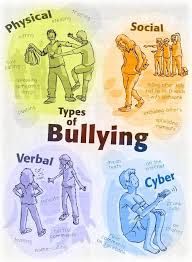Bullying in Schools: Causes, Effects, and Prevention Strategies
admin
October 14, 2023

Bullying in Schools: Causes, Effects, and Prevention Strategies
Title: Bullying in Schools: Causes, Effects, and Prevention Strategies
Bullying is a pervasive issue that affects schools worldwide. It can have detrimental effects on students’ mental and emotional well-being, as well as their academic performance. In this blog post, we will explore the causes and effects of bullying and discuss effective prevention strategies.
**Causes of Bullying:**
- **Lack of Empathy:** One of the primary causes of bullying is a lack of empathy among bullies. They may not fully comprehend the emotional pain they inflict on their peers.
- **Power Imbalance:** Bullying often arises from a perceived power imbalance, where the bully believes they can assert control and dominance over their target. This power dynamic can be based on physical strength, social status, or other factors.
- **Family and Environmental Factors:** Some bullies come from homes where they witness aggressive behavior or are subjected to it themselves. Such experiences can normalize bullying as a means of problem-solving.
- **Peer Pressure:** Some students engage in bullying behavior to fit in with a group or maintain their social status among peers. They may fear becoming targets themselves if they do not conform.
**Effects of Bullying:**
- **Mental and Emotional Distress:** Victims of bullying often suffer from anxiety, depression, and low self-esteem. They may experience long-lasting psychological trauma that can affect their mental health well into adulthood.
- **Academic Consequences:** Bullying can have a significant impact on a student’s academic performance. Victims may struggle to concentrate in class, leading to lower grades and decreased motivation to attend school.
- **Physical Health Issues:** The stress and anxiety caused by bullying can manifest as physical health problems, including headaches, stomachaches, and sleep disturbances.
- **Social Isolation:** Many victims of bullying withdraw from social activities, leading to feelings of loneliness and isolation. They may have difficulty forming friendships and developing healthy relationships.
- **Long-Term Consequences:** The effects of bullying can extend into adulthood, affecting victims’ ability to establish successful careers and maintain healthy relationships.
**Prevention Strategies:**
- **Promote Awareness and Education:** Schools should implement anti-bullying programs that raise awareness about the issue and educate students on what constitutes bullying and its consequences.
- **Encourage Reporting:** Schools should create a safe and anonymous reporting system for students to report bullying incidents. Encouraging bystanders to report incidents is crucial in identifying and addressing the problem.
- **Support Systems:** Establish support systems within the school, such as counselors and peer mentors, to help victims cope with the emotional and psychological effects of bullying.
- **Conflict Resolution Training:** Teach students conflict resolution and problem-solving skills to address issues peacefully and constructively.
- **Promote Inclusivity:** Encourage a school culture of inclusivity, tolerance, and diversity. This can be achieved through activities that celebrate differences and promote respect for all individuals.
- **Involve Parents and Guardians:** Parents and guardians should be involved in bullying prevention efforts. They can support their children in addressing bullying and promote a culture of respect at home.
- **Consequences for Bullies:** Implement disciplinary measures for bullies that are appropriate and consistent. These consequences can serve as a deterrent for potential bullies.
In conclusion, bullying in schools is a serious problem with far-reaching consequences for both the victims and the bullies themselves. To combat bullying effectively, it is crucial to address its root causes, understand its effects, and implement prevention strategies. By promoting empathy, educating students, encouraging reporting, and creating a supportive and inclusive school environment, we can work together to reduce and ultimately prevent bullying in our schools. It is a collective effort that involves students, educators, parents, and the community as a whole.
